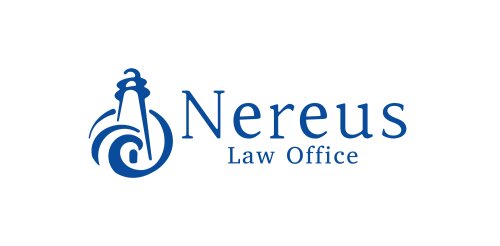Best Renewable & Alternative Energy Lawyers in Istanbul
Share your needs with us, get contacted by law firms.
Free. Takes 2 min.
List of the best lawyers in Istanbul, Turkey
About Renewable & Alternative Energy Law in Istanbul, Turkey
Renewable and alternative energy law in Istanbul, Turkey covers the rules, regulations, and government policies that promote the use and development of sustainable energy sources. These energy sources include solar, wind, hydroelectric, geothermal, and biomass. Istanbul, as Turkey’s largest city and a central hub for business and industry, plays a significant role in the country’s shift toward green energy. The Turkish government is committed to increasing the share of renewables in the national energy mix, and this commitment translates into numerous regulations and incentives relevant to both local and international investors, businesses, and residents interested in renewable energy projects.
Why You May Need a Lawyer
Legal support is crucial in renewable and alternative energy for several reasons. A lawyer with expertise in this field can help navigate complex regulatory environments and handle issues such as:
- Securing permits and licenses needed to develop renewable energy projects
- Negotiating and drafting contracts with suppliers, partners, or government agencies
- Ensuring compliance with local and national energy regulations
- Representing your interests in disputes or litigation involving energy investments
- Helping with land acquisition and land use issues for energy projects
- Advising on government incentives, grants, or subsidies that may be available
- Protecting intellectual property rights in energy innovation
- Advising on power purchase agreements and grid connection rules
Whether you are an investor, developer, property owner considering a solar panel installation, or a business aiming to expand into renewable energy, specialized legal guidance can save time, money, and help avoid unnecessary risks.
Local Laws Overview
Turkey’s legal system has established a robust framework to support renewable and alternative energy. Key aspects include:
- Renewable Energy Law No. 5346: This cornerstone law encourages renewable energy production by establishing purchasing guarantees, regulating grid access, and offering incentives for energy investments.
- Unlicensed Electricity Generation: Individuals and small businesses can produce their own electricity from renewable sources up to a certain capacity without needing a full generation license, provided they meet the technical criteria set by the Energy Market Regulatory Authority (EMRA).
- Feed-in Tariffs: The law includes mechanisms that guarantee fixed payment rates for renewable energy supplied to the grid for certain periods, making investments more predictable.
- Environmental Laws and Zoning: Energy projects must comply with environmental impact assessment (EIA) requirements and local zoning laws. This is particularly relevant in a densely populated city such as Istanbul where land use is highly regulated.
- Licensing and Permitting: Renewable energy projects often require multiple permits from various municipal and national authorities. These may include construction permits, grid connection agreements, and environmental approvals.
These laws are regularly updated to reflect Turkey’s commitment to the Paris Agreement and the European Union’s energy directives. Keeping up to date with legal requirements is crucial for any renewable energy endeavor in Istanbul.
Frequently Asked Questions
What is classified as renewable and alternative energy in Turkey?
Renewable and alternative energy in Turkey includes solar, wind, hydroelectric, geothermal, biomass, and landfill gas. These sources are considered sustainable alternatives to fossil fuels.
Do I need a permit to install solar panels on my property in Istanbul?
Yes. While smaller rooftop installations for personal use may have a simplified process, permits and compliance with safety and grid regulations are still generally needed. Checking with the local municipality and EMRA is recommended.
Are there government incentives for renewable energy investments in Istanbul?
Yes. Incentives can include feed-in tariffs, purchase guarantees, customs duty exemptions, and tax reductions, especially for certain types of equipment and local production.
How can a lawyer help with a renewable energy project in Istanbul?
A lawyer can guide you through permits, licensing, contract negotiation, land acquisition, regulatory compliance, and resolving any disputes that may arise.
Is it possible to sell surplus electricity generated by renewable systems?
Yes. Individuals and businesses can sell surplus electricity to the grid if certain legal and technical requirements are fulfilled, including registration with the relevant authorities.
What environmental regulations apply to renewable energy projects?
Projects typically require an Environmental Impact Assessment and must comply with local and national environmental protection laws, especially concerning land use and emissions.
What are the risks of starting a renewable energy project without legal assistance?
Risks include delays, fines, losing eligibility for incentives, contractual disputes, noncompliance with regulations, and even project shutdowns.
Can foreign investors and companies participate in renewable energy projects in Istanbul?
Yes. Turkey encourages foreign investment in renewables, but investors must comply with Turkish law and specific requirements for international ownership in certain sectors.
How do zoning laws affect renewable energy installations in Istanbul?
Zoning and land use restrictions may limit where and how renewable energy systems can be installed, particularly in historic or densely populated areas. Legal guidance is advised to evaluate site suitability.
How can I check if my planned project needs an energy generation license?
Generally, small-scale and unlicensed generation up to 5 MW have fewer licensing requirements, but it is important to check with EMRA or consult a lawyer to ensure compliance with all regulations.
Additional Resources
For more information and guidance, the following organizations and agencies are useful points of contact:
- Energy Market Regulatory Authority (EMRA) - Regulates the electricity market and oversees licensing and compliance.
- Ministry of Energy and Natural Resources - Responsible for national energy policies and programs.
- Istanbul Metropolitan Municipality - Local permits, zoning, and environmental regulations are managed here.
- Turkish Renewable Energy Association (EUYDER) - Provides news, support, and advocacy for renewable energy investors and professionals.
- Invest in Turkey (Investment Promotion Agency) - Offers assistance and information for foreign investors in the energy sector.
Next Steps
If you are considering a renewable or alternative energy project in Istanbul, follow these steps to protect your interests and ensure success:
- Identify your project’s scope and energy goals
- Consult with a lawyer experienced in energy law to review requirements and develop a legal strategy
- Engage with relevant government agencies early in the planning process
- Ensure all permits and licenses are obtained before starting construction or operation
- Monitor regulatory changes that could affect your project’s operation and profitability
- If you face legal issues or disputes, seek professional legal representation promptly
Acting with informed legal guidance can help you navigate the fast-evolving renewable energy landscape in Istanbul successfully and efficiently.
Lawzana helps you find the best lawyers and law firms in Istanbul through a curated and pre-screened list of qualified legal professionals. Our platform offers rankings and detailed profiles of attorneys and law firms, allowing you to compare based on practice areas, including Renewable & Alternative Energy, experience, and client feedback.
Each profile includes a description of the firm's areas of practice, client reviews, team members and partners, year of establishment, spoken languages, office locations, contact information, social media presence, and any published articles or resources. Most firms on our platform speak English and are experienced in both local and international legal matters.
Get a quote from top-rated law firms in Istanbul, Turkey — quickly, securely, and without unnecessary hassle.
Disclaimer:
The information provided on this page is for general informational purposes only and does not constitute legal advice. While we strive to ensure the accuracy and relevance of the content, legal information may change over time, and interpretations of the law can vary. You should always consult with a qualified legal professional for advice specific to your situation.
We disclaim all liability for actions taken or not taken based on the content of this page. If you believe any information is incorrect or outdated, please contact us, and we will review and update it where appropriate.

















